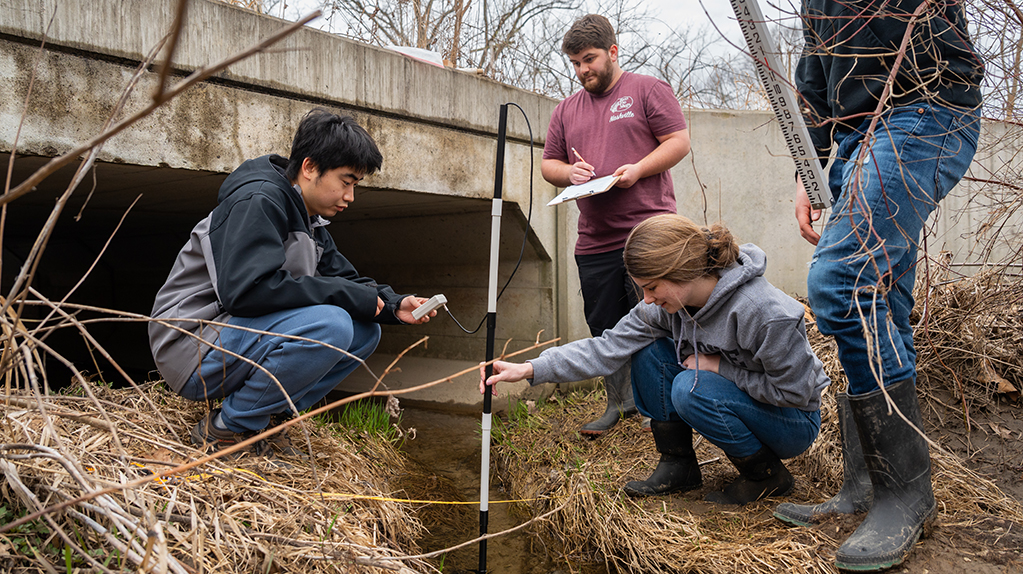Environmental and Natural Resources Engineering
Protect the world around you and address global sustainability challenges. Explore how ecosystems work and how human activity affects them to design smart solutions. From clean water to air quality, apply cutting-edge technology and engineering to protect our planet — and launch a career that makes a difference.

Why Purdue?
Applying
Applying to Engineering in West Lafayette
To study environmental and natural resources engineering at Purdue, you will apply to either the first-year engineering or agricultural and biological engineering (pre) major. All engineering students in West Lafayette build a foundation for success by completing core first-year engineering curriculum, which is the same in either path, before transitioning to a specialty major in the second year. Core curriculum includes courses in math, chemistry, physics, computer programming and communication skills, as well as introductory engineering coursework that explores career options to help you identify which specialty major is the right fit.
The priority application deadline for first-year engineering and agricultural and biological engineering (pre) is Nov. 1. Applications received after Nov. 1 for this competitive major will be evaluated based on available space.
Our students are prepared to launch careers across a variety of industries to tackle global environmental and sustainability challenges including:
- Ecological restoration specialist
- Environmental engineer
- Environmental policy analyst
- Hydrologist
- Research engineer
- Sustainable land use engineer
- Water resources engineer
Through innovative hands-on experiences and world-class instruction, our graduates pursue advanced education or launch careers at top companies including:
- Civil engineer, Black & Veatch
- GIS and project manager, Banning Engineering
- Hydraulic engineer, Indiana Department of Natural Resources Division of Water
- State conservation engineer, Indiana Natural Resources Conservation Service
- Water engineer, Cleveland Metroparks
- Master of Science graduate program, Iowa State University
- Master of Science graduate program, Florida State University
You should pursue the most rigorous high school curriculum available to you. Succeeding in challenging courses will make you a stronger candidate for Purdue’s competitive admission process and better prepare you for college success.
Minimum high school coursework (many applicants exceed these minimums):
- Math – 4 years
- English – 4 years
- Lab science – 3 years
- Social studies – 3 years
- World language – 2 years
In addition to meeting or exceeding the minimum high school course requirements, our holistic review process places particular emphasis on key academic courses such as:
- Calculus (if available at high school)
- Four years of laboratory sciences, including:
- Biology
- Chemistry (expected)
- Physics (if available at high school)
Connect
College of Agriculture
Discover over 30 majors, plus minors and concentrations, at one of the world’s top-ranked agricultural colleges.
Contact
Office of Academic Programs
(765) 494-8470
purdueag@purdue.edu
Visit
Experience for yourself all that Purdue has to offer with opportunities to explore in-person or virtually.
Apply
Ready to take the next step? Apply to begin your journey at Purdue in engineering.
Transfer to Environmental and Natural Resources Engineering
Purdue admits to individual majors. Transfer students must meet Purdue’s overall transfer criteria, as well as any major-specific requirements. Before you apply, check the closed programs page to confirm this major is open to transfer students. If it is, refer to the information below for major-specific transfer criteria.
- Minimum 3.0 GPA
- For detailed admissions requirements to transfer into any of Purdue’s engineering majors, review our engineering transfer criteria.










